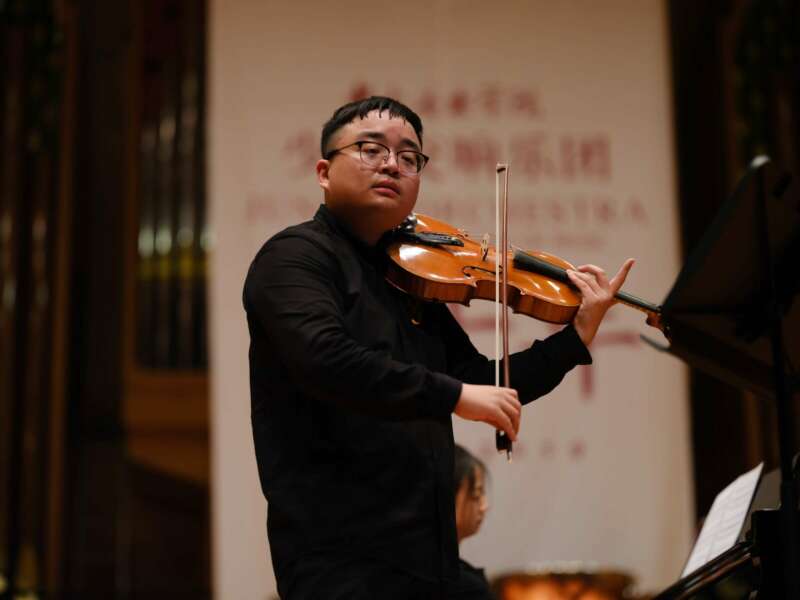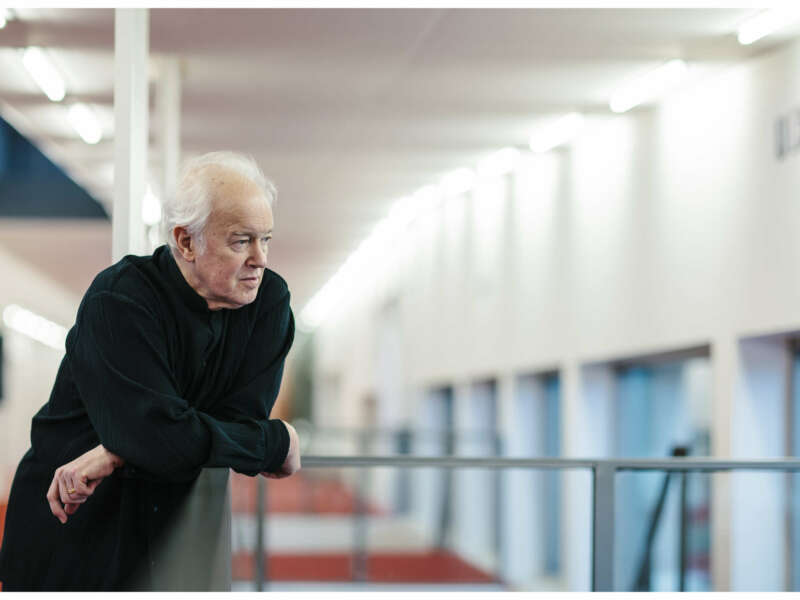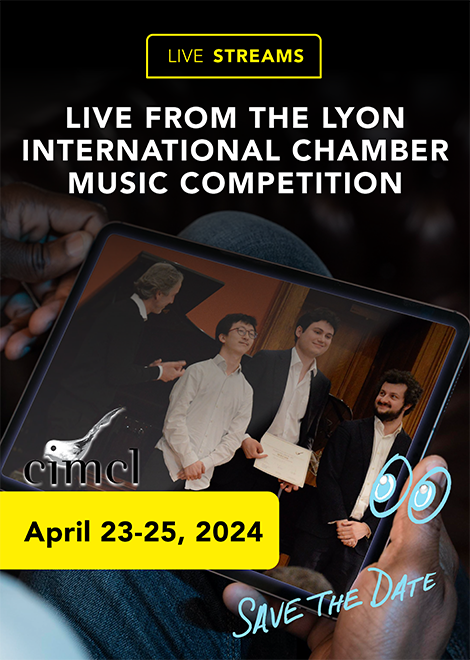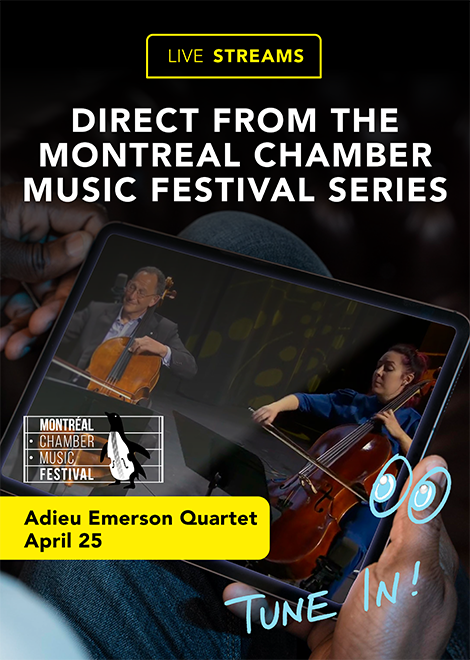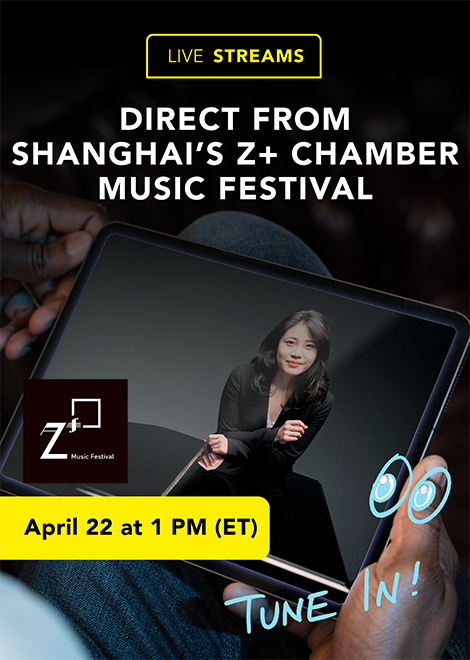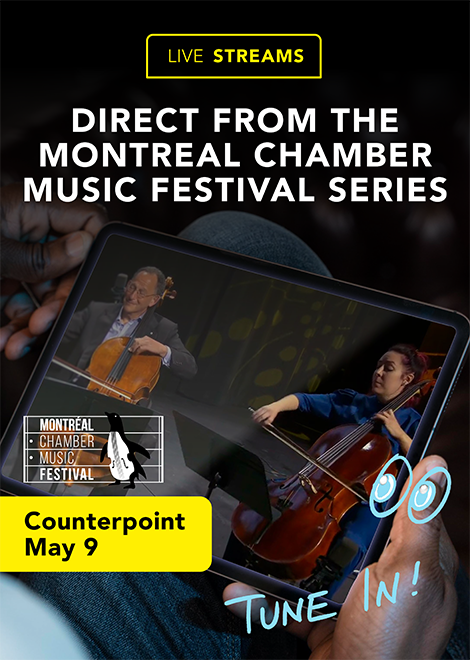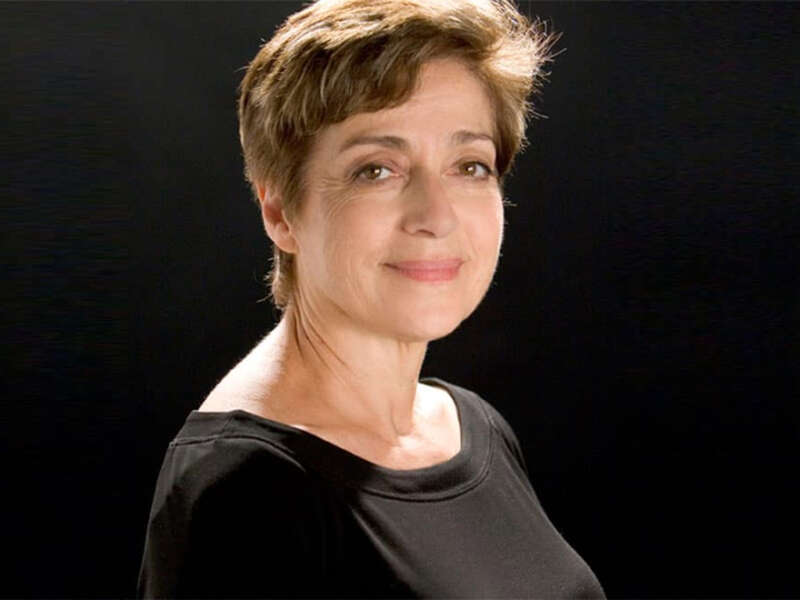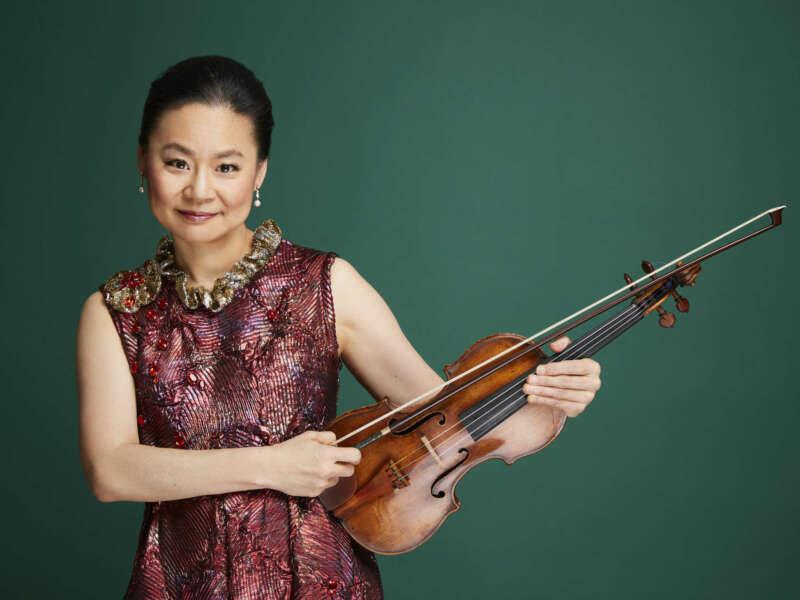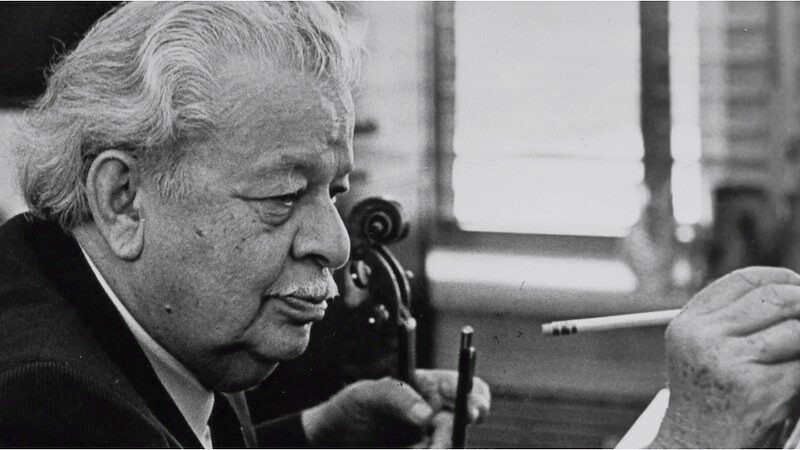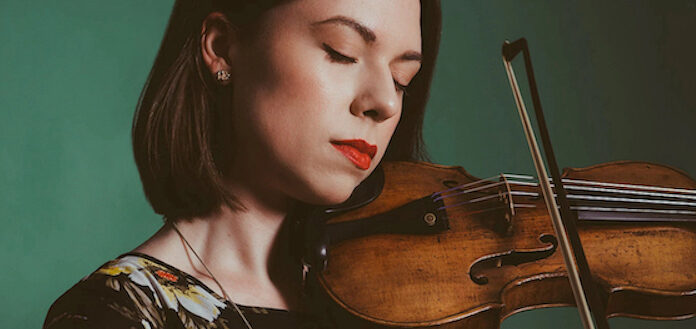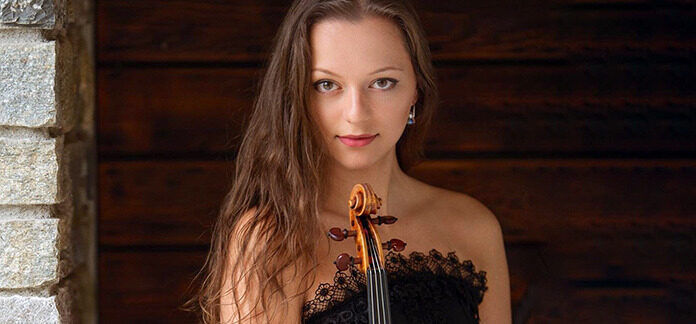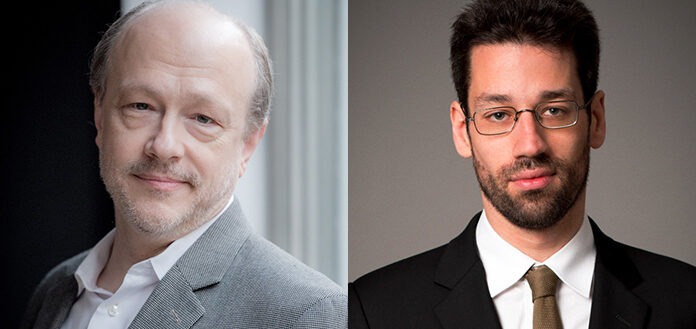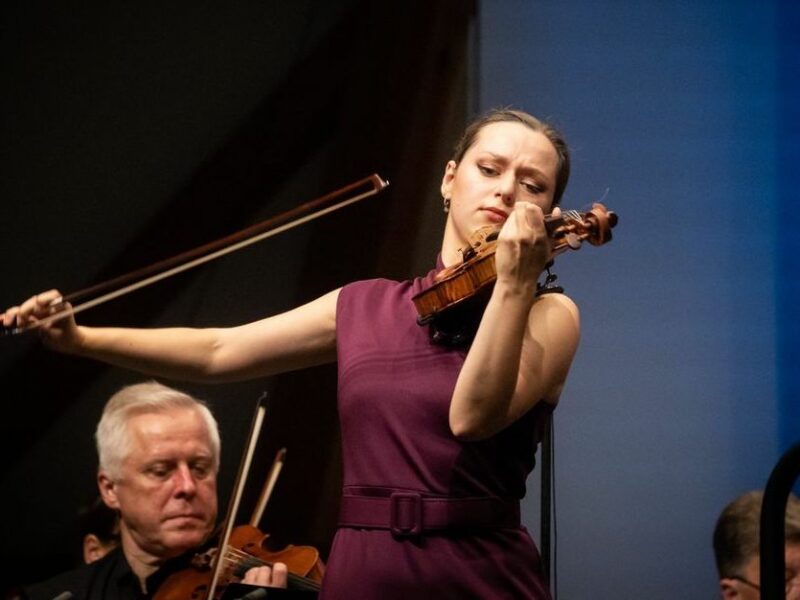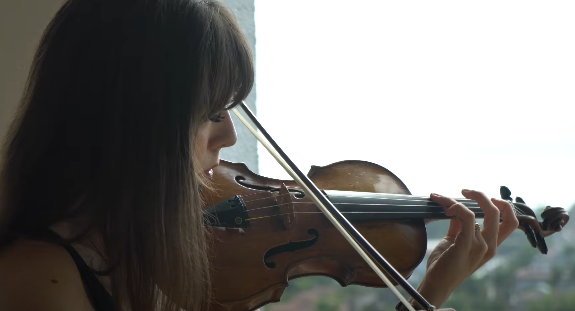VC INTERVIEW | Miriam Fried on Her "Musical Homages" Studio Class Challenge
Miriam, in collaboration with The Violin Channel, challenged her 14 students to create the "Musical Homage" online festival
The Violin Channel recently caught up with New England Conservatory violin pedagogue, Miriam Fried.
Can you tell us about your passion for teaching and how your approach/pedagogy has evolved over the years?
When I started teaching I didn’t even know that I had a passion for teaching. I was asked if I would do it and I said yes. What I found interesting was that teaching forced me to think more clearly about what I do, and figure out how to explain what I do. And by having to do that, I had to think about why I do it. That is where I think my relationship to playing the violin and being a musician became more crystallized. Most of us start playing when we are way too young to know why we do it or if we even want to do it. You kind of just do it because it’s what you have always been doing.
I was lucky enough to be very successful so I was playing and I barely had time to think about what I was going to do tomorrow, much less why I was playing the violin. Beginning to teach was a moment of reflection and it really made me realize how incredibly important being a violinist was for my life.
What I really feel I learned is that you have to keep reminding people why they are doing this. What is the motivation? The motivation is really communication. Communicating the love that you have for what you do with people who you don’t know, and you probably are never going to meet. And yet you have this obligation to really be very clear in your love for it, and in your desire for them to share in it. It’s a lot!
It has become a focus for me to keep saying to people, 'Look, when you play a concert you ask people to possibly get a baby sitter, get dressed, make a trip, buy a ticket, sit down, pay attention, shut up basically, and love you!' You want to give them something for all of this effort. The best thing that you can give them is just innate love for music and the belief that it does make your life better. That if you listen to it, you will be better for it.
What are the most beneficial aspects of having weekly studio classes?
I think there are basically two different issues that are incredibly important here. Number one is the opportunity for the students to perform. I always say that there are 5 kinds of performances. The first step is when you are performing for yourself at home and nobody is hearing you. The second is when you play the same piece for your teacher. The third is in class. The fourth is in a concert at school. And the fifth is a concert out in the world. I don’t think you can skip any of the steps.
Obviously, when you are no longer a student, two of the steps are bypassed because you don’t have a teacher and you don’t have a class. But by that time you probably don’t need the five. But at the beginning you really do. You need to see how it works, what works, what doesn’t work, what do you do about what doesn’t work.
There are things you cannot really do anything about. People always focus on the acoustics being bad. Well, what are you going to do about it? You better live with it. Or people say that the weather makes their violin sound terrible. Well if you have a concert at Carnegie Hall, you are not going to say this. Just learn how to deal with it. There are all kinds of things that you do need to learn. This is one aspect.
The other aspect I think is very important is that I ask the class to listen with the understanding that I will ask them to comment afterward. There are several things to learn. The first thing is, never say something to somebody that you don’t want them to say to you. How do you say it so it is constructive, but not offensive? This is a skill. People are not born knowing how to do that.
You have to listen in a way that is very detailed, so that you actually have something to say rather than 'I liked it' or 'I didn’t like it.' An audience member can say that, but a professional cannot just stop there. Why did you like it? What did you like about it? And then perhaps what did you not like or what do you think could be improved? It really improves their listening skills and it also teaches them how to comment.
How did you adapt your teaching to the COVID-19 situation? What do you feel is most challenging for students during these times?
I think the most challenging aspect about it is that the class really becomes a community and they don’t have this in-person community now. It is missing. This is really something that they depend on. Usually, they play for each other, they talk to each other about music and other things, they just interact socially. I think it is a very important component of going to school and it is completely missing. So I am really eternally grateful to NEC for allowing us to have some in-person lessons. Those students who are here have lessons every other week in person, which is great.
But even those who are here are being very careful because they know that otherwise, the school won’t let them in. So they can’t interact normally. We had two classes in person this semester because it is very difficult to schedule the time, and then we are only allowed to stay one hour, and then we have to go out for half an hour, etc., etc. It is all very complicated, but nice for all of us to just be together and see people.
The other thing is that I can barely tell what their sound is, so I am commenting by looking. What kind of a way is that to teach? I don’t know for sure because you cannot hear real violin sound, you cannot hear any dynamics, and you cannot hear any inflections hardly at all. It has been very challenging.
I think that students are very worried about the future, I must say I am a little less worried about it. I do believe in the fact that music is really necessary for at least part of the population and after this is over they will want it more than ever.
I choose to be optimistic. I don’t know what this gloom and doom is going to do. It doesn’t help. I just don’t participate in that particularly, but I think they are very worried about their futures. You know how it is, you sit by yourself and you just kind of go over and over these worries and they get bigger. It is not healthy. They started giving the vaccine, so let’s hope it works!
Tell us about your "Musical Homages" studio class concert series? What are you hoping to achieve? What are your goals for your students?
I think that any opportunity to perform is great. And any opportunity for them to get together and to have to put together a program is great because if you want to be a professional this is something you will have to learn how to do. They learn from each other, they exchange ideas.
This process in normal years takes a couple of months because they are lazy about it. This time they didn’t have the luxury so they had to do it quickly which was great. There was a flurry of communication and I had nothing to do with it. I gave them basically my opinion about what I thought might be interesting and I left them alone. I think that was a good process and a lot of people looked for pieces that were not necessarily in front of the mill pieces and that was a good thing.
They are very excited about finally having something to perform. Most of them had very little opportunity. A couple probably did some online stuff but most of them didn’t do anything. They are starved for the opportunity to perform. Everybody was all into it. I didn’t have to remind them that I haven’t heard the pieces in lessons, everybody remembered. It was great.
What positive aspects did you see coming out of the project?
What I am hoping is that people will continue to look for new repertoire. Because one of the things that happen in school is that one person plays, let’s just say, the Elgar Concerto, then in the next three months six other people want to play only the Elgar concerto. And if somebody plays Beethoven’s 7th Sonata then half of the class is playing Beethoven’s 7th Sonata.
I always say that there are all kinds of pieces out there that you don’t know. Even from the canon, there are pieces that they don’t know. Why don’t you look and find new repertoire. This time they looked for it, and I really hope that they learned to explore things that they don't already know.
The idea of making room for compositions by Black composers, by Hispanic composers, by women composers is important. Because it is part of the problem. There is no question about it. We don’t know it and what we don’t know we assume is no good. This assumption, where does it come from? I don’t know. But there is no question that there is that assumption, that it is no good therefore nobody plays it. But not necessarily, so I hope that that will also be an outcome of this.
What advice or encouragement would you like to give to students everywhere for the coming semesters?
It’s always the same. We do this because we love music. That is the motivating force. Music is there and we love it. And this love I don’t think should be affected at all by COVID.
Once we can start having performances, even for 50 people — it would be better than for nobody — things will start regenerating. The musical life that we are used to will come back and I believe that this could be used as an opportunity to invent new ways of doing this, to look for new venues, new audiences, new opportunities.
I always say build on the basic reasons that you have for doing this which is love of music. And if you really love it you will want to share it with people and figure out who you want to share it with.
april 2024
may 2024




